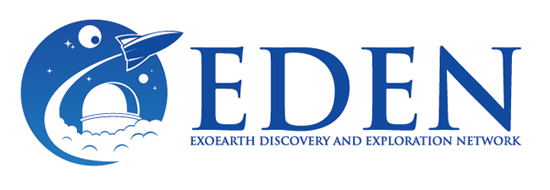Exoearth Discovery and Exploration Network (EDEN)
Project website: http://project-eden.space
Over the past two decades, more than four thousand extrasolar planets have been discovered, giving rise to a new scientific field: extrasolar planets. However, due to the methods utilized, over 95% of these worlds are at great distances, typically several hundred to thousands of lightyears from Earth. Most of these planets are simply too distant to be characterized in details.
Somewhat counterintuitively, most planetary systems in the direct vicinity of the Sun remain unexplored. Although techniques exist to find planets around the closest stars, most of these stars have not yet been searched systematically for planets.
Yet, the planetary systems closest to us are the ones that will be studied in detail in the future and, perhaps, in the future may even be visited by probes or crewed space missions.
EDEN is a research project aiming to lead and support research to identify and characterize habitable planets within 50 lightyears.
By exploring the habitable planets around the stars closest to the Sun, Project EDEN aims the search for life in the solar neighborhood and leads to the discovery of planets that are close enough to be studied in details.
Project EDEN builds on state-of-the-art knowledge and methods in astrophysics, planetary sciences, and astrobiology to search for and characterize the closest habitable worlds. The major partners in Project EDEN are the Steward Observatory of the University of Arizona, the Max Planck Institute for Astronomy, Heidelberg, and the Vatican Observatory (Vatican). As of Summer 2018 the three partners provide over a thousand nights on six research telescopes on three different continents.
Read more about Project EDEN on our website: http://project-eden.space


For Public
Public events include our Monday Night Lecture Series, world-reknowned Astronomy Camp and Mt Lemmon Sky Center.

For Students
A good place to start if you want to become an undergrad major or grad student, or need to find our schedule of classes.

For Scientists
Find telescopes and instruments, telescope time applications, staff and mountain contacts, and faculty and staff scientific interests.




